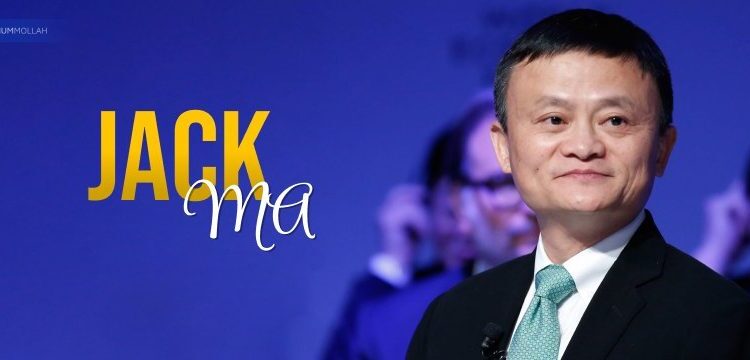Introduction
Jack Ma Yun, born September 10, 1964, in Hangzhou, China, is a visionary entrepreneur and philanthropist who founded Alibaba Group, a global e-commerce giant valued at over $400 billion in 2025. From a modest background as an English teacher, Ma built Alibaba into a conglomerate spanning e-commerce, cloud computing, and digital payments, revolutionizing global trade. His initiatives, notably the Africa Netpreneur Prize and eFounders Fellowship, have significantly impacted Nigerian e-commerce by empowering entrepreneurs and fostering digital ecosystems. Ma’s 2019 visit to Nigeria, engaging with startups and government, inspired platforms like Jumia and Konga, driving Nigeria’s e-commerce market, projected to reach $15 billion by 2025. His story of resilience and innovation continues to motivate Nigeria’s digital economy.
Early Life and Education
Born to traditional musician-storytellers in Hangzhou, Ma faced early setbacks, failing the gaokao (college entrance exam) twice due to weak mathematics. Self-taught in English from age 12 by guiding tourists, he honed his communication skills, later graduating with a BA in English from Hangzhou Normal University in 1988. Assigned as an English lecturer at Hangzhou Dianzi University, earning $12 monthly, Ma’s entrepreneurial spark emerged in 1994 with Hangzhou Hope Translation Agency. His first encounter with the internet in 1995, during a U.S. trip, inspired China Pages, an online directory acquired by China Telecom in 1996. These humble beginnings resonate with Nigerian entrepreneurs navigating resource constraints.
Entrepreneurial Journey and Alibaba’s Rise
In 1999, Ma co-founded Alibaba with 17 friends in his Hangzhou apartment, launching a B2B e-commerce platform to connect Chinese SMEs with global markets. Unlike competitors, Alibaba charged sellers membership fees, enabling small businesses to thrive. By 2003, Ma launched Taobao, a C2C marketplace that outmaneuvered eBay in China, and Tmall, a B2C platform hosting brands like Nike. Alibaba’s 2014 NYSE IPO, raising $25 billion, was the largest ever at the time. Today, Alibaba’s ecosystem—including Alipay, Cainiao logistics, and AliCloud—handles 11% of China’s retail sales, per Foreign Policy, with 1.3 billion annual active users globally.
Ma stepped down as Alibaba’s executive chairman in 2019, focusing on philanthropy, but remains a spiritual leader. His lack of technical expertise—admitting in 2010 he never wrote code or made a sale—didn’t hinder his success. Instead, Ma’s charisma, emotional intelligence, and knack for leading technical experts distinguished him, inspiring Nigerian founders like Tunde Kehinde of Jumia.
Impact on Nigerian E-commerce
Ma’s engagement with Africa, particularly Nigeria, began with his 2017 visit to Kenya, where he saw parallels between Africa’s digital potential and China’s 1990s internet boom. In 2019, he visited Nigeria for a digital economy summit, meeting President Muhammadu Buhari and leading investors, as noted by @BashirAhmaad on X His Africa Netpreneur Prize Initiative (ANPI), launched in 2018 with a $10 million fund, awarded Nigerian entrepreneur Temie Giwa-Tubosun $250,000 in 2019 for her blood bank platform, LifeBank. The eFounders Fellowship, partnered with UNCTAD, trained Nigerian entrepreneurs like Jessica Anuna of Klasha, a cross-border payment platform, fostering 119 African participants by 2020.
These initiatives inspired Nigeria’s e-commerce giants. Jumia, often called “Africa’s Amazon,” was listed on the NYSE in 2019, partly due to the digital momentum Ma championed. Konga’s growth, handling 50,000 daily orders by 2025, reflects Alibaba’s model of empowering SMEs. Ma’s emphasis on logistics and mobile payments influenced Nigeria’s Paystack, acquired by Stripe for $200 million in 2020. His 2019 Nigeria speech, advocating “4 Es” (entrepreneurs, education, engagement, e-infrastructure), spurred policies like Nigeria’s Digital Economy Strategy, allocating $500 million for tech hubs. Posts on X credit Ma for “igniting Nigeria’s e-commerce fire.”
Philanthropy and Advocacy
Through the Jack Ma Foundation, established in 2014, Ma has donated $3 billion in Alibaba share options for education, entrepreneurship, and environmental causes. In 2020, the foundation gave $200 million in COVID-19 relief, including test kits to Nigeria, earning Ma Forbes China’s Most Charitable Entrepreneur title. His advocacy for inclusive digital economies, seen in his UNCTAD role as Special Adviser, influenced Nigeria’s AfCFTA adoption, easing cross-border e-commerce. Ma’s environmental push, supporting Nigeria’s Great Green Wall via ANPI, aligns with anti-desertification efforts.
Recognition and Legacy
Ma’s accolades include Time’s 100 Most Powerful People (2009, 2014), Forbes’ World’s 50 Greatest Leaders (2017), and Nigeria’s 2019 Order of the Niger for economic impact. He received an honorary doctorate from HKUST (2013) and the UN’s SDG Pioneer Award (2018). Despite a 2020–2023 hiatus from public life after criticizing China’s financial system, leading to Ant Group’s IPO cancellation, Ma reemerged in 2024 as Alibaba’s largest shareholder. His $25.2 billion net worth fuels his global influence.
Personal Life and Challenges
Ma married Zhang Ying in 1988, with two children, and owns a vineyard in France. A martial arts enthusiast, he starred in the 2017 kung fu film Gong Shou Dao with Jet Li. His 2020 criticism of China’s regulators led to a $2.8 billion fine on Alibaba and his temporary exile. In Nigeria, some criticized his focus on elite entrepreneurs over grassroots traders, but his programs’ inclusivity, training 500 Nigerian SMEs by 2023, countered this. His resilience inspires Nigerian youth on X.
Conclusion
Jack Ma’s transformation from an English teacher to Alibaba’s founder has inspired Nigeria’s e-commerce boom, empowering entrepreneurs through ANPI and eFounders. His 2019 Nigeria visit and digital advocacy catalyzed platforms like Jumia and policies fostering a $15 billion market. As Bloomberg noted in 2019, “Ma sees e-commerce as Africa’s big opportunity.” His legacy in Nigeria—through job creation, SME empowerment, and digital inclusion—ensures his vision of a “digital Africa” drives the nation’s economic future, bridging Chinese innovation with Nigerian ambition.
Sources: Wikipedia, Forbes, The Guardian Nigeria, Vanguard Nigeria, ThisDay Nigeria, Punch Nigeria, Premium Times, Bloomberg, World Economic Forum, Asia Times, UNCTAD, The New York Times, TechCabal, CKGSB, Asia Society.


















